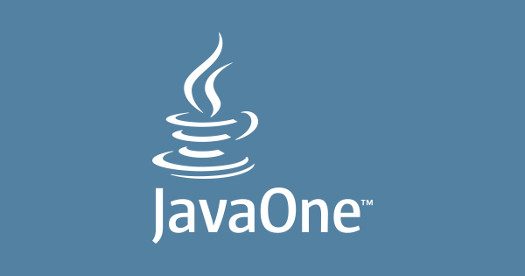According to a new survey, Oracle's been bleeding Java JDK customers since it got greedy with its pricing in 2023.
Posts tagged as “java”
There are many ways to contribute to an open source project. There are also many reasons for doing so. But before jumping in, you might want to know how things generally work within these projects.
The Video Screening Room
If you’re interested gaining some tips and insights into how to contribute to open source, this video of a presentation given on September 19 at the JavaOne conference in San Francisco by Gunnar Wagenknecht, a software engineer at Salesforce, and Wayne Beaton, director at the Eclipse Foundation, might be useful to you.
For the past 10 years, Phil has been working at a public library in the Washington D.C.-area, helping youth and adults use the 28 public Linux stations the library offers seven days a week. He also writes for MAKE magazine, Opensource.com and TechSoup Libraries. Suggest videos by contacting Phil on Twitter or at pshapiro@his.com.
The Video Screening Room
This movie trailer spoof sells a movie that’s definitely not coming soon to a theater near you. If it were, however, you can bet your booty it’d be released under a Creative Commons license.
When I found out that I was going to have the opportunity to substitute for Phil Shapiro for today’s video column, I jumped at the chance. Why? Because I want to share with you one of the great TV parodies that the JavaZone conference produces each year.
 In case you don’t know, since its beginning fifteen years ago, JavaZone has grown to be the largest independent conference for Java developers on the planet. The conference is held each year in Oslo, Norway, with this year’s event scheduled for September 7-8.
In case you don’t know, since its beginning fifteen years ago, JavaZone has grown to be the largest independent conference for Java developers on the planet. The conference is held each year in Oslo, Norway, with this year’s event scheduled for September 7-8.
You don’t have to be a big Java fan to really like these folks, for they are 100 percent — that means totally for those of you who have trouble with numbers — behind open source. For the past six years or so, they’ve produced annual video parodies of popular television shows, which over time have become increasingly lavish productions.
Christine Hall has been a journalist since 1971. In 2001, she began writing a weekly consumer computer column and started covering Linux and FOSS in 2002 after making the switch to GNU/Linux. Follow her on Twitter: @BrideOfLinux
It appears as if Java can be added to the list of things that Oracle spent big bucks acquiring from Sun for no apparent reason. Last Wednesday, InfoWorld’s Paul Krill wrote an article around an email the site received from “a former high-ranking Java official” who said, “Java has no interest to them anymore.”
 The article prompted JAXenter to speculate, “It’s possible that Oracle sees few other ways to make money with Java than by suing Google, who many might argue have boosted the Java community with [what] is arguably one of the biggest Java-based innovations in years — Android.”
The article prompted JAXenter to speculate, “It’s possible that Oracle sees few other ways to make money with Java than by suing Google, who many might argue have boosted the Java community with [what] is arguably one of the biggest Java-based innovations in years — Android.”
Christine Hall has been a journalist since 1971. In 2001, she began writing a weekly consumer computer column and started covering Linux and FOSS in 2002 after making the switch to GNU/Linux. Follow her on Twitter: @BrideOfLinux
FOSS Week in Review
Java is the target for half of all exploits
We’ve been saying for a couple of years now that Java isn’t safe and have been urging everyone who will listen to disable Java in the browser. As we’ve been saying this, comments to our articles on Java security have filled with folks wagging a finger and “reminding” us that Java is only a threat in the browser, that otherwise Java is safe.
That is wrong. The only time Java is safe is when it’s in a cup. According to an article published on IT World, researchers say that Java is now responsible for fully half of the exploits discovered in December.
Friday FOSS Week in Review
We may be paranoid but they are out to get us
In week three (or is it week four?) of the Spy vs. Spy scandal, the Obama folks keep saying things like “what’s the big deal?” while trying to convince us that the secret oversight court called FISA (we prefer “the Star Chamber”) has nothing but our constitutional rights in mind when it rubber stamps requests to secretly steal our privacy. Obama likes to talk about transparency. Indeed, he becomes more transparent by the moment; we’re beginning to see right through him. The 22nd amendment should now be seen as a face saver for Mr. Obama–as we would think no self respecting liberal or progressive would vote again for this man who once represented our best hope. Pity.
 Back in March and April, when the Java browser plugin was getting hammered with security holes that were being exploited in the wild, we conducted a couple of unscientific polls here on FOSS Force to determine how our visitors were handling this security crisis.
Back in March and April, when the Java browser plugin was getting hammered with security holes that were being exploited in the wild, we conducted a couple of unscientific polls here on FOSS Force to determine how our visitors were handling this security crisis.
To call the problems that Java was experiencing at the time a “crisis” is not an exaggeration. If you’ll remember, the situation was considered so serious that here in the U.S., the Department of Homeland Security was urging everyone to disable the Java plugin.
These two Java polls were among the first we conducted on FOSS Force and received about the fewest votes of any polls we’ve conducted so far. Undoubtedly, this was partially due to the fact that we were just beginning to conduct polls on the site, and so polling here was something new to our visitors. Also, our articles on Java security issues received a smaller number of page views than most articles we publish. However, low readership notwithstanding, we will continue to cover serious security issues, because we think it’s important that we do so.
![]() We’re not ready to tell you we think it’s safe to reactivate your Java browser plugin–in fact, just the opposite–but we will say that Oracle is at least giving the appearance they’re now serious about addressing browser-side Java’s safety. Early last week they issued a security patch that fixed either 41 or 42 Java security issues, depending on what website you’re reading.
We’re not ready to tell you we think it’s safe to reactivate your Java browser plugin–in fact, just the opposite–but we will say that Oracle is at least giving the appearance they’re now serious about addressing browser-side Java’s safety. Early last week they issued a security patch that fixed either 41 or 42 Java security issues, depending on what website you’re reading.
Excuse us if we don’t seem too impressed. At this juncture all we’re willing to do is say with utmost snark, “It’s about time.”
Christine Hall has been a journalist since 1971. In 2001, she began writing a weekly consumer computer column and started covering Linux and FOSS in 2002 after making the switch to GNU/Linux. Follow her on Twitter: @BrideOfLinux







 Wow…just wow.
Wow…just wow.